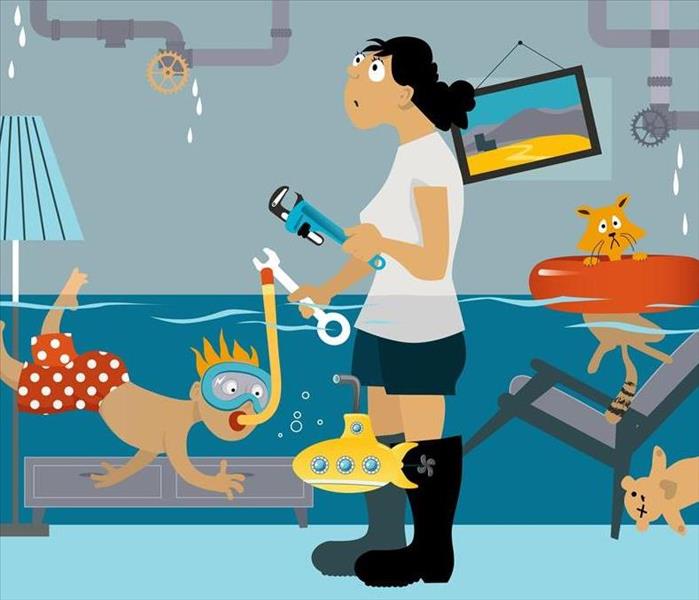What To Do If Your Basement Floods
4/21/2022 (Permalink)
Because it is the lowest level of your home, flooding can be a problem in your basement when you have heavy rain or a nearby body of water overflows. Taking the proper steps after a flood is important for limiting your damage and staying safe.
What To Do When You Have a Basement Flood
There are several steps to take when dealing with water in your basement.
1. Call Professionals for Large Floods
If you have a large amount of water in your basement, it may be dangerous to attempt to clean it up on your own. Contact your power company to shut off the electricity. Contact a professional flood remediation company in Layton, UT, to deal with removing the water. Aim to dry out your basement and contents in 48 hours or less. After that point, mold may become a problem.
2. Remove Water If
you have just a few inches of water in your basement, you can remove it with a wet vac. If you don't own one, you may be able to rent one or purchase one from a hardware or home improvement store.
If you have just a small amount of water, you can use mops, towels and sponges to clean it up.
3. Dry Your Basement
Once you remove the water, you will probably still have excessive moisture in the air. This can lead to mold growth. Use fans and dehumidifiers to circulate the air and remove the excess moisture.
Throw out any wet contents or move it outside until it dries. Turn your air conditioning on and leave it on.
4. Clean Flooring
Standing water from flooding can contain bacteria and organic matter. Use a mixture of one cup of chlorine bleach and one gallon of water to clean your floors and any other surfaces that the water was in contact with.
Wear protective eyewear and gloves and make sure the room is ventilated while you clean.
5. Prevent Future Water Problems
Reduce your risk of future water problems by making sure your downspouts, gutters and drains are not clogged with debris. Consider installing screens to prevent leaves and birds' nests from accumulating. Check your basement drain and clean it if necessary. Check for leaks that need pipe repair.
Consider taking other steps, such as changing the grading of your yard to promote water running away from your house, to reduce your flood risk.
6. Relocate Your Stuff
It is best to avoid storing valuable property in your basement, particularly if it is easily damaged property, such as items made from paper. If you must store things in the basement, put them on shelves or concrete blocks to keep them above the waterline. Use plastic storage bins instead of cardboard boxes for storage.
7. Service Your Sump Pump
Your sump pump is an important part of protecting your basement from water damage. Get it serviced to make sure it is ready for the next weather event.
Flooding in your basement can be a major hassle. Taking the correct steps after a flood can help keep you safe and prevent unnecessary damage from occurring.






 24/7 Emergency Service
24/7 Emergency Service
